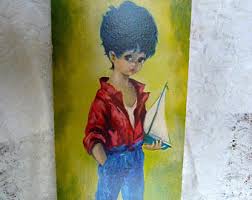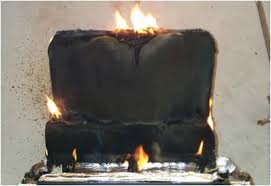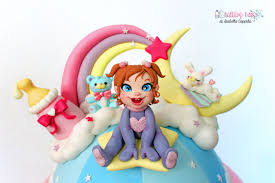I continue to be obsessed with this problem of incompatible self-narratives. So, permit me one more rant on the subject. In this post I want to tell you about the dissociation I experienced myself, during my days of addiction, and the child-like freedom it brought me. I also want to compare what I experienced then to what I’m hearing from my psychotherapy clients now.
In re-reading my last two posts, I still see value in recognizing that we have discrepant versions of ourselves, discrepant self-narratives. And that trying to mash them together into a single coherent self-narrative can be more trouble than it’s worth (even though that’s considered the principal task of growing up). In fact, for addicts, it can be agonizing. It can generate much more stress than it resolves. And that’s simply more fuel for the addiction. Rather, I suggested that we try to accept each self-narrative, e.g., the “addict self” and the “good self,” on its own terms, and allow them to cohere in their own time.
The most extreme version of separate, distinct self-narratives is what psychiatrists call dissociation. And the most extreme form of dissociation is a bonafide multiple personality syndrome. While multiple personality is very rare, dissociation is not. It can be quite common for people with addictions.
When I was seriously addicted (during my 20s) I had two distinct selves — I can only call them that. By day I was an industrious graduate student in psychology. I was attentive in seminars and determined to excel — which I generally did. Then as the day drew to a close, my anxiety grew. Things were not working out in my marriage — my wife and I had radically different needs and  expectations. I’d anticipate going home, dismissing my own needs, and catering to hers. Really I was going back to my “false self” — a term borrowed from psychoanalytic theory — which means being fake and imagining that the fake you is the real you. I tried being sensitive, solicitous, responsible, accommodating. I felt trapped in this role — a third self-narrative? I couldn’t see a way out. So I managed to change selves. I’d get those first glimmerings…why don’t I get some drugs and get high and of course hide it, not only from my wife but from everyone. It will be my secret — it’s always been my secret. Except when things went really wrong, like the time I woke up on a
expectations. I’d anticipate going home, dismissing my own needs, and catering to hers. Really I was going back to my “false self” — a term borrowed from psychoanalytic theory — which means being fake and imagining that the fake you is the real you. I tried being sensitive, solicitous, responsible, accommodating. I felt trapped in this role — a third self-narrative? I couldn’t see a way out. So I managed to change selves. I’d get those first glimmerings…why don’t I get some drugs and get high and of course hide it, not only from my wife but from everyone. It will be my secret — it’s always been my secret. Except when things went really wrong, like the time I woke up on a  sofa in the student union lounge suffocating on what seemed poison gas. That unholy smell was burning upholstery. The sofa was on fire from the cigarette I’d dropped while nodding out. Or the times I got busted, fired, or kicked out of school.
sofa in the student union lounge suffocating on what seemed poison gas. That unholy smell was burning upholstery. The sofa was on fire from the cigarette I’d dropped while nodding out. Or the times I got busted, fired, or kicked out of school.
So much for war stories. You often pay tenfold for whatever freedom your addiction earns. I did. But the solution isn’t to ignore what it’s telling you — about yourself…or your selves.
 Here’s my point: when I switched to my drug-taking self, everything changed in my emotional world. I felt free and I felt real. I knew that I was in deep shit in my life, in my marriage, in every index of adult functioning. But! In this self-narrative, I was a bad boy who would get away with something, as I had before, as I would again, until…maybe until I got caught or until the rules changed. I willingly went after the freedom I gained from “being bad” — which is pretty much the label I attached to my drug-seeking.
Here’s my point: when I switched to my drug-taking self, everything changed in my emotional world. I felt free and I felt real. I knew that I was in deep shit in my life, in my marriage, in every index of adult functioning. But! In this self-narrative, I was a bad boy who would get away with something, as I had before, as I would again, until…maybe until I got caught or until the rules changed. I willingly went after the freedom I gained from “being bad” — which is pretty much the label I attached to my drug-seeking.
People dispute whether addictive drug-taking is a choice or a disease. For me, as you know, it’s a choice, but it’s not a rational choice. It can certainly be a compulsive choice. It can be a very effortful choice to stop, which means it can be a relatively easy choice not to stop. (Choice is momentary. Anyone who’s ever been addicted knows the feeling of surrendering to the impulse — the relief of it. But the fact of that relief does not contradict the fact that you’ve just made a choice.) So what are we choosing when we choose to get high? Not just the feeling of the drug (or activity — as in porn, sex addiction and gambling) or the excitement of anticipation. We’re choosing freedom from the restraints of being who we’re supposed to be. We’re choosing to become the child and throw off the sense of being judged and held accountable.
 There’s a lot more to say about this choice. We know that most addicts had difficult childhoods of one kind or another; they could not be the children (or teens) they really were yet fit the world of adult expectations. In the dissociation of self-narratives that comes with addiction, we become those unruly children once again.
There’s a lot more to say about this choice. We know that most addicts had difficult childhoods of one kind or another; they could not be the children (or teens) they really were yet fit the world of adult expectations. In the dissociation of self-narratives that comes with addiction, we become those unruly children once again.
I’ve got roughly 10 clients in online psychotherapy right now — all of them struggling with addiction or moving beyond it. For perhaps every one of them, the addiction is a portal into a revamped childhood. They each give up the “self-imposed” rule of abstinence for the release of using (or doing). Several are coke addicts for whom coke is the thrilling invincibility of the rebellious child. Two are porn addicts who find in porn a secret world where they can watch the forbidden and desirable…and pretend. Two are heroin users who give up the loneliness and boredom of adult life for the cookie jar of pure pleasure, stolen rather than earned. For another, it’s food. Why should I have to stop eating? Why should I obey?! For all these people — and they are people I like and respect — addiction isn’t primarily about the substance or activity. It’s a portal to another world, where they can be another self. And here’s the crux: that other self feels more real, at least for a while — I mean more authentic, more pure — than the obedient, responsible self they return to afterward.
I wonder whether the “addict self” and the “good self” can only converge thoroughly, peacefully, when we allow ourselves to be greedy and selfish and needy or defiant, day to day, moment to moment, honouring the child who still lives inside us, at our core. When we grow to that stage (maybe with a little help from our “uber self” or our therapist or mindfulness meditation), when we achieve that degree of self-acceptance, then we won’t have to go to such lengths to feel comfortable in our own skin.

Leave a Reply